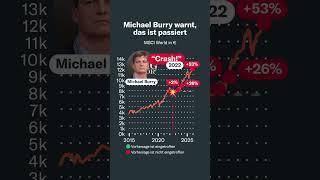| The Balfour Declaration was penned 100 years ago, but its legacy still resonates in the Middle East today. How did a letter, only 67-words long, ignite 100 years of conflict?
Click here to subscribe to The Economist on YouTube: http://econ.trib.al/rWl91R7 100 years ago this week Arthur Balfour, the British foreign secretary, penned a letter that would change the face of the Middle East. The letter published on November 2nd 1917 led to the creation of the State of Israel and would spark almost a century of conflict. The American Colony Hotel has hosted guests in Jerusalem for over a century. This place has a unique perspective on the region’s history because it’s played a part in it. Presidents and peacemakers, spies and journalists, use this space, often in secret, to hatch plans and discuss the future. The hotel sits close to the former border separating East from West Jerusalem. Today, the whole city is under Israeli rule but Jews and Arabs are still divided. This place is a haven from the troubles all around. Jeremy and Ahmad have both worked here for more than 30 years. Jeremy Berkovits is the hotel’s chief financial officer. He is an Israeli. Ahmad Shakarneh is the head of housekeeping. He is a Palestinian. Balfour’s letter has had a profound impact on both of these men. They live on opposite sides of Israel’s security barrier. The letter’s crucial clause read “His Majesty’s Government view with favour the establishment in Palestine of a national home for the Jewish people”. But it also warned “it being clearly understood that nothing shall be done which may prejudice the civil and religious rights of existing non-jewish communities in Palestine”. Here in the hotels archive Jeremy and Ahmad view the letters legacy very differently. The letter was a declaration of support for Zionists who wanted to create a Jewish state. In the carve up of the Ottoman Empire after the First World War the League of Nations gave Britain a mandate to rule Palestine. But the Arabs who had been living in Palestine for centuries turned increasingly to resistance and violence, culminating in a revolt in 1936. As they crushed the uprising, the British tried to win over the Arabs by restricting Jewish ambitions. Jewish anger also turned violent. The British gave up and handed the problem over to the United Nations. In 1947, the UN voted to partition Palestine – but the Arabs rejected this and fighting broke out. As the last British soldiers left Palestine in May 1948, the moment had come for the Jews. They declared the State of Israel. Neighbouring Arab countries invaded immediately. In the armistice of 1949, Israel and Arab states divided up the land but there was no Palestinian state, just two regions controlled by Egypt and Jordan, now known as the West Bank and Gaza. An estimated 700,000 Palestinians fled or were pushed out of their homes. They called this the Nakba – the Catastrophe. Since then there have been wars, uprisings, terrorist attacks and diplomatic deals. Nothing has brought lasting peace or a State for the Palestinians. Since the war of 1967, many Palestinians now live in the West Bank under permanent Israeli occupation, cut off by the Israeli security barrier. They have autonomy in big cities and towns but are surrounded by Jewish settlements. Others are locked away in the Gaza Strip the scene of repeated wars. A century on from Lord Balfour’s letter his 67 words have left a profound but mixed legacy. The conflict between Arab and Jew remains intractable. The Balfour Declaration helped to create Israel, but the state of Palestine is not yet born Daily Watch: mind-stretching short films throughout the working week. For more from Economist Films visit: http://films.economist.com/ |
Tags:






































